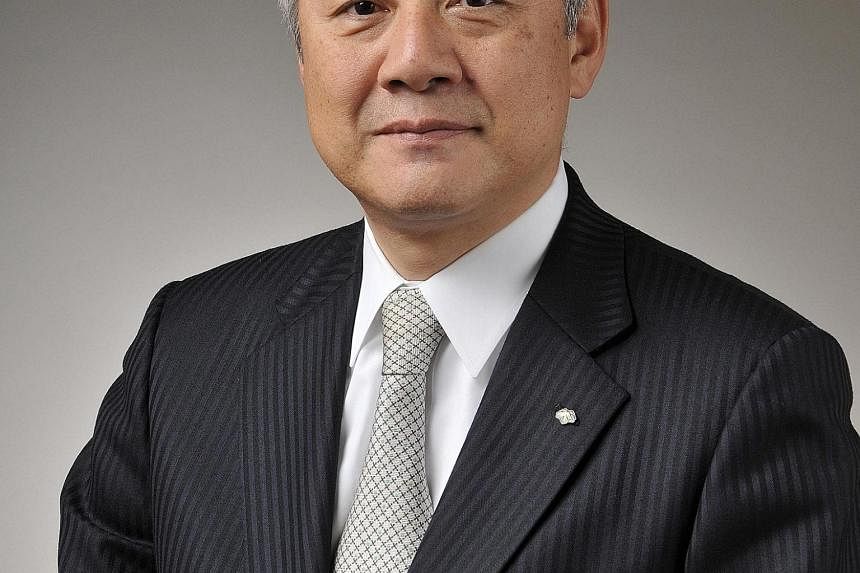JAPANESE financial giant Nomura is keen to play a more active role in addressing the growing infrastructure funding needs in Asia, as part of its plan to strengthen its wholesale businesses in the region.
Mr Tetsu Ozaki, chief executive officer of Nomura's global wholesale arm, told The Straits Times that the organisation can help plug the gaps left by commercial banks.
"The infrastructure funding need is traditionally served by commercial banks or government-backed lenders, such as the Asian Development Bank or the upcoming Asian Infrastructure Investment Bank. But what they offer is not nearly enough," he noted.
These concerns were highlighted to Nomura by its advisory board members - including Singapore's Emeritus Senior Minister Goh Chok Tong and Mr Dee-pak Parekh, chairman of leading Indian banking group HDFC - during the annual Nomura Investment Forum Asia held in Singapore earlier this month.
Mr Ozaki said: "As Asia increasingly looks to local currency capital markets for infrastructure developments, there are a lot of things that we can do on this front in terms of matching these projects with debt market investors globally."
Capturing the dynamics in Asia will be increasingly important for Nomura, which drew 24 per cent of its international wholesale revenue from Asia excluding Japan in the 12 months to March 31, up from 17 per cent a year earlier.
Higher profits at the wholesale division - one of Nomura's three key units alongside retail and asset management - helped to push full-year group earnings to US$1.9 billion (S$2.6 billion), its highest in nine years.
The improvement contributed to a glowing report card for Mr Ozaki, who was appointed in April last year to lead Nomura's wholesale businesses, including global markets and investment banking units.
Wholesale earnings for the year ahead will remain robust, he said, despite the mix of uncertainties on the horizon.
"Market circumstances will not be easy going forward, with the Greek debt crisis and the interest rate hike by the United States some time later this year. But capital market activities have stabilised compared to a year ago.
"For instance, the primary corporate bond sector is rapidly expanding over the world and investors are still expecting yield to pick up this year, so issuances will remain strong," he said.
On this coming fiscal year, Mr Ozaki said: "I see the rates, credit and foreign exchange businesses as huge drivers for us, because this is where more clients will have a headache as they face the interest rate fluctuations ahead.
"Meanwhile, the DCM and ECM (debt and equity capital market) funding activities are still picking up. Particularly, underweighted investors will sustain demand and supply in the equities market, along with expansion in the IPO (initial public offering) market."
While Asia will be increasingly prominent as a business driver, the US is still Nomura's prime focus market. It accounted for 47 per cent of the global wholesale market size in the last financial year compared with Asia ex-Japan's 17 per cent share.
Nomura is poised to increase its footprint in the US after a credit rating upgrade by Moody's last October, Mr Ozaki said.
"Last year, we entered the top 10 fixed income ranking in the US for the first time. We will continue building our market share, leveraging on our improved credit rating at a time when some European firms are scaling back in the US."
Despite his confidence, Mr Ozaki is looking ahead with an equal measure of caution, as he is aware that, like all its peers in the financial industry, Nomura will have to navigate an increasingly challenging regulatory landscape.
"Regulatory issues are indeed becoming more and more severe, with new measures coming up constantly. We are not overly optimistic about the regulatory outlook.
"We have a healthy balance sheet, and the key for us now is not to expand it but to utilise it more effectively. But unlike the European institutions, we are not going to shrink our risk-weighted asset, so that we can continue to serve our key clients."


